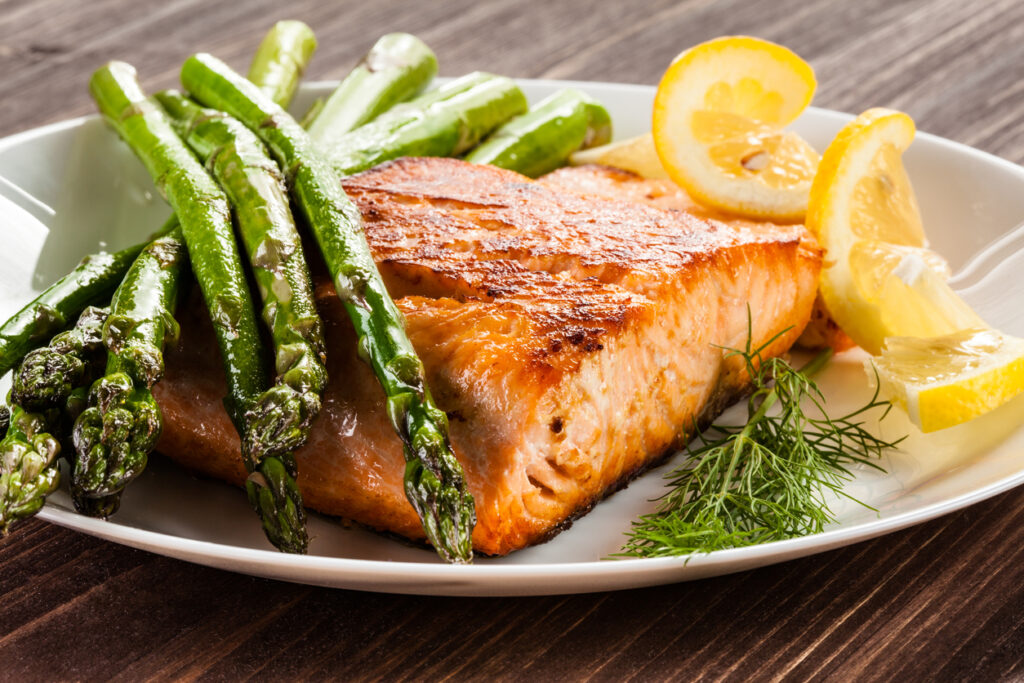While it’s common knowledge that a well-balanced, nutritious diet is good for the whole body, did you know that the opposite — a bad diet — might harm your eyesight, particularly if you’re recuperating from LASIK eye surgery? The quality of the food, how it is prepared, and the amount ingested may all have a role in the development of eye diseases. As a result, we’ve developed a list of things to stay away from.
Meats that are very fatty
Rich cholesterol is typically caused by a diet high in processed meats high in saturated fat, such as red meat and sausage. Plaque builds up on the macular veins of the eyes as a consequence, restricting blood flow to the eyes which helps in recovery from lasik eye surgery. As a consequence, eating a lot of fatty meats may increase your risk of developing macular degeneration, a retinal illness that causes vision loss. This may also halt the progression of laser eye surgery. Learn more tips for cataract eye surgery recovery.
Foods for Snacks Snack foods like chips, cookies, and sweets may have a negative impact on your eyesight if ingested in large or even moderate quantities. According to a recent research, the vegetable, monounsaturated, and polyunsaturated fats included in these meals enhance the risk of eye diseases in persons who eat them in large amounts. The excessive salt and sugar content of these meals, in addition to the unhealthy fats, has a negative impact on the health of the body’s organs and circulatory system, hindering blood and oxygen flow to the eyes.

Sugar A high-sugar diet is one of the most harmful to the eyes, particularly when it comes to laser eye surgery. Consuming large quantities of sugar on a regular basis raises your blood sugar, causing the lens of your eye to expand and distort your vision. Excess sugar consumption may lead to diabetes, which can lead to leaky blood vessels in the eyes, ocular hemorrhages, and potentially permanent vision loss.
Fried foods are foods that have been fried.
The heating and re-heating of frying oils changes their molecular structure, which is harmful to the whole body, including the eyes. Fried foods deplete the body of nutrients and release free radicals, which hurt eye cells and slow the healing process after LASIK surgery. Furthermore, eating fried foods weakens the heart and reduces blood circulation, both of which affect blood flow to the eyes and may lead to eyesight loss.
Foods that are good for your eyes
Following your education on which foods to avoid in large amounts, here is a list of foods that may aid in the prevention of eye diseases:
- Eggs
- Citrus fruits and berries • Green, leafy veggies
- DHA-rich salmon and other seafood (omega-3 fatty acid)
The following are some of the laser surgery risks:
• Eyes that are dry.
The LASIK eye surgery lowers tear production temporarily. As your eyes heal, they may seem particularly dry for the first six months or so after surgery. Your eyesight may be harmed by dry eyes.
To treat dry eyes, your eye doctor may prescribe eyedrops. If you have severe dry eyes, special plugs may be inserted in your tear ducts to prevent tears from draining away from the surface of your eyes.
• Halos, glare, and double vision are all common symptoms.
You may have problems seeing at night after LASIK eye surgery, which usually lasts a few days to a few weeks. Symptoms include increased sensitivity to light, glare, halos around bright lights, and double vision.
Even if you get a good visual result under standard testing conditions, your vision in dim light (such as at twilight or in fog) may be impaired to a greater degree than before surgery.

Undercorrections.
You will not attain the increased eyesight you seek if the laser damages inadequate tissue in your eye. Individuals who are nearsighted are more prone to need undercorrections. You may need another LASIK eye surgery within a year to remove additional tissue.
Overcorrections.
Furthermore, the laser may remove an excessive amount of tissue from your eye. It’s possible that fixing overcorrections is more difficult than correcting undercorrections.
Astigmatism.
The loss of tissue in an uneven manner may cause astigmatism. It’s possible that you’ll need further surgery, glasses, or contact lenses.
Problems with the flap.
Folding back or removing the flap from the front of your eye during surgery might cause problems including infection and excessive tears.
Regression.
The outermost corneal tissue layer underneath the flap may form improperly throughout the healing process. When your eyesight progressively returns to your previous prescription, this is known as regression. This is an issue that occurs seldom.

Visual impairment or loss.
Surgical complications may also result in vision loss. Furthermore, some people may lose their ability to see as sharply or clearly as they did before.
Hazards are exacerbated by certain circumstances.
Certain medical conditions might increase the risks of LASIK surgery or make the result less predictable.
Your doctor may not recommend laser refractive surgery if you have certain conditions, such as rheumatoid arthritis or a weakened immune system caused by immunosuppressive medications or HIV.
- Drugs, hormonal changes, pregnancy, nursing, or old age have all caused recent alterations in eyesight.
- Corneal inflammation, lid irregularities, eye injuries, or eye diseases such uveitis, herpes simplex in the eye, glaucoma, or cataracts.
If you have an eye illness that causes the cornea to thin and bulge, or if you:
- Have a family history of it
- Have pretty decent overall vision
- Have severe nearsightedness, LASIK surgery is typically not indicated.
- Participate in contact sports that may include blows to the face
- Have excessively big pupils or thin corneas
- Have age-related eye changes that cause vision to become less clear
If you’re thinking about LASIK eye surgery, talk to your doctor about your worries and questions. Your doctor will evaluate whether you are a good candidate for this or similar procedures.
Methods of preparation
There are many things you may do to be ready for surgery, including the following:
Estimate how much surgery will cost.
Most insurance companies will not cover the cost of LASIK eye surgery since it is deemed elective. Prepare to pay for your expenses with your own money.
Arrange for return transportation.
You’ll need transportation to and from the surgery center. You may have lingering symptoms from the medicine you were given before to surgery, and your vision may be blurry.
Leave your eyeshadow at home.
Avoid applying eye makeup, creams, scents, or lotions the day before and the day of your surgery. In the days leading up to surgery, your doctor may encourage you to brush your eyelashes daily or more often to remove debris and lower your risk of infection.

